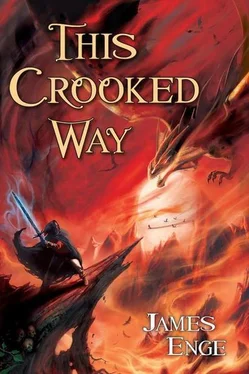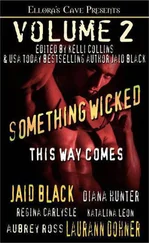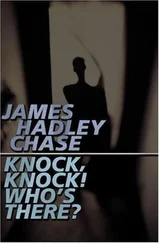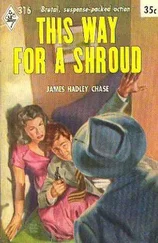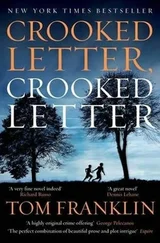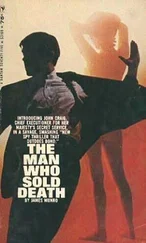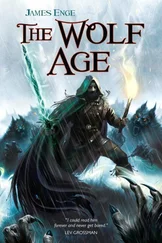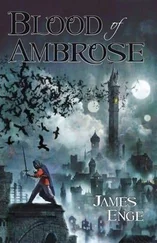"What?" roared the troll with all its mouths.
Morlock explained, "The spell binding you here permits you to eat anyone who has crossed the bridge without your permission. This creates two classes of bridge-crosser: those who have crossed without your permission, and those who have crossed with it. I am clearly in the latter class: you have permitted me to cross the bridge three times. Three is a magic number, you know."
"It is?"
"Everyone says so."
"Oh, pus and broken fangs. I suppose I should have paid more attention to my magic lessons. But I thought that I'd never use it, you see. I always wanted to be a bridge-troll."
Morlock shrugged and walked by. The troll clenched all its jaws as he passed, and he kept his hand free to summon Tyrfing, if need be. But he reached the far side without a struggle and walked away into the unclaimed woods.
Merlin was waiting for him there.
"You killed the troll, I suppose?" the old necromancer said, stepping out from behind a tree.
"Talked my way past it," Morlock said. He reached over his shoulder and drew Tyrfing. "If it had been smarter, I might have had to kill it."
"Morlock and God: protectors of fools. But who'll protect you, Morlock? Do you ever wonder that?"
Morlock shrugged and waited for his father to say something worth answering.
"At least," Merlin said at last, "the troll kept you busy until I had a chance to get here. Now you face me in my own person, Morlock-not a fetch or an illusion."
For answer Morlock reached out and passed his left hand through Merlin's chest. It was almost wholly insubstantial, a mere cloak of light and sound for his fetch.
Merlin's face took on the irritated expression it usually wore when he confronted his son. "How did you know?"
There were three or four ways Morlock had known: the absence of any movement among the grasses on which Merlin was supposedly standing was only the most obvious.
But he found that he could say nothing in response. The light particles had taken flight in a complicated four-dimensional pattern around his hand. The pattern drew his attention and held it. He could neither move nor speak.
"Morlock, Morlock," Merlin's voice chided him. "Of course, you are the master of all makers. I know you never say so, but I say so, and I would really rather say it about myself, as we both know. But I am the master seer and lifemaker-necromancer, as some ignorantly call it. I knew you would come here: I saw it in my map of the future. I could not risk facing you here myself. So I set this trap for you.
"And the best part of it is, you set it off yourself. If you could have brought yourself to speak to me like a human being, your will would still be free. But I knew that you couldn't resist the temptation to brush my little simulacrum out of your way.
"Morlock, you are a maker and you think of light as physical. But it, like aether, casts a shadow on the talic and even the spiritual realms. I find it an easy thing to infect a cloud of light with my will, and now that cloud has infected you. You must remain where you are until I see fit to free you. Not even death will be a release: I think my binding spell will hold your self there even if your body rots away. Anyway, we'll see, won't we?"
What Merlin said was both true and false, Morlock felt. His body was bound by the light, but his mind was free. That meant he had at least one choice to make.
"Yes," Merlin drawled. "You could try that. If you think you can best me in my own art of Seeing."
Morlock didn't think that he could. It was simply that or surrender, and Morlock, when sober, wasn't the surrendering type.
Recklessly, he summoned the rapture of vision. The world of matter and energy fell away to dim shadows; he stepped into the bright world of understanding and intent, the borderland between the material and spiritual. His own fetch appeared: a black-and-white pillar of flames. Tyrfing, too, took on his monochrome talic presence as an extension of himself.
Merlin's fetch stood before him; shed of its illusory light-cloak, he was a pillar of red flames, his fiery hands grasping the staff and faceted crystal that were his own foci of power.
Pity there are no witnesses to this! Merlin's awareness remarked directly into Morlock's. It will become a legendary battle among those-who-know.
Morlock signalled his indifference: the talic equivalent of a shrug.
Merlin struck, a lightning-branch of terror leaping out to infect Morlock's talic limbs.
Morlock banished it with Tyrfing and riposted with a triple-fanged stab of guilt-shame-weariness.
Merlin absorbed it with his diamond-shaped focus and remarked pleasantly, So much for old favorites. See how you like this!
But that was the end of it.
They had forgotten they were not alone.
They had forgotten because Nimue was spread thin through the world, like a three-cornered spiderweb.
But the tal-world is nearer the spirit-world, where distances matter not at all, and Nimue's physical division did not diminish her talic power.
The three-cornered spiderweb that was Nimue's fetch radiated sudden refusal.
Stop this, she said, and Merlin's attack died aborning.
It might have been the time for Morlock to strike a final, perhaps a fatal blow, but he didn't want to draw her anger on himself. He dismissed his vision and fell back into the chaos of matter and energy that those-who-donot-know call the real world.
He was lying on the ground in the forest, Tyrfing still gripped in his hand. Merlin's fetch had vanished and Morlock's body was free to move as he willed.
"Thanks, Mother," he rasped out when he could speak.
She didn't answer that he could tell.
He struggled to his feet and, sheathing his sword, headed through the woods westward.
Due west was the talic zone of danger he had avoided while travelling eastward. Now he hoped that whatever was projecting it would provide some cover from the malefic necromancer he knew at last for his enemy.

V II
INTERLUDE: BOOK OF WITNESS
OH, TO BEHOLD THY FEATURES IN THY BOOK! THY PROPER HEAD AND SHOULDERS IN A PLATE, HOW IT WOULD LOOK!
– THOMAS HOOD
Every clutch of fosterlings, every phalanx of Virgin Sisters, every warrior-pod, every coven of seers and stand of elders had a copy of the book of Witness, and read this part of the tale from it in the season of Motherdeath. But this was the book itself, its leather cover cracked and often repaired, many of its pages inscribed by a pen held in a man's awkward stiff fingers. There were no harmony marks; it was traditional to read the words as written: flat, monovocal, with a single mouth. Some wore a dark-skinned man-mask for the purpose, but Gathenavalona, young Dhyrvalona's nurse, thought that was stupid.
She did think it was important for her charge to see the book itself, not a copy-and to hear it. The book had come into the horde's possession on the night of Motherdeath, and Roble's part of the story was already written within it in his own handwriting. After Motherdeath, when the seers were seeking to understand the catastrophe that had befallen them, they sought out other witnesses to the terrible events, speaking to them in dreams and recording their dream-voices in magic letters that could speak again, when called upon in the proper manner.
Marh Valone was the keeper of the book, and Gathenavalona stood now in his pavilion holding the book in her palp-clusters.
"I thank you again, Marh of Marhs!" she said gratefully. "This is a trust; I feel it deeply. I will return the book unscathed or die."
Читать дальше
